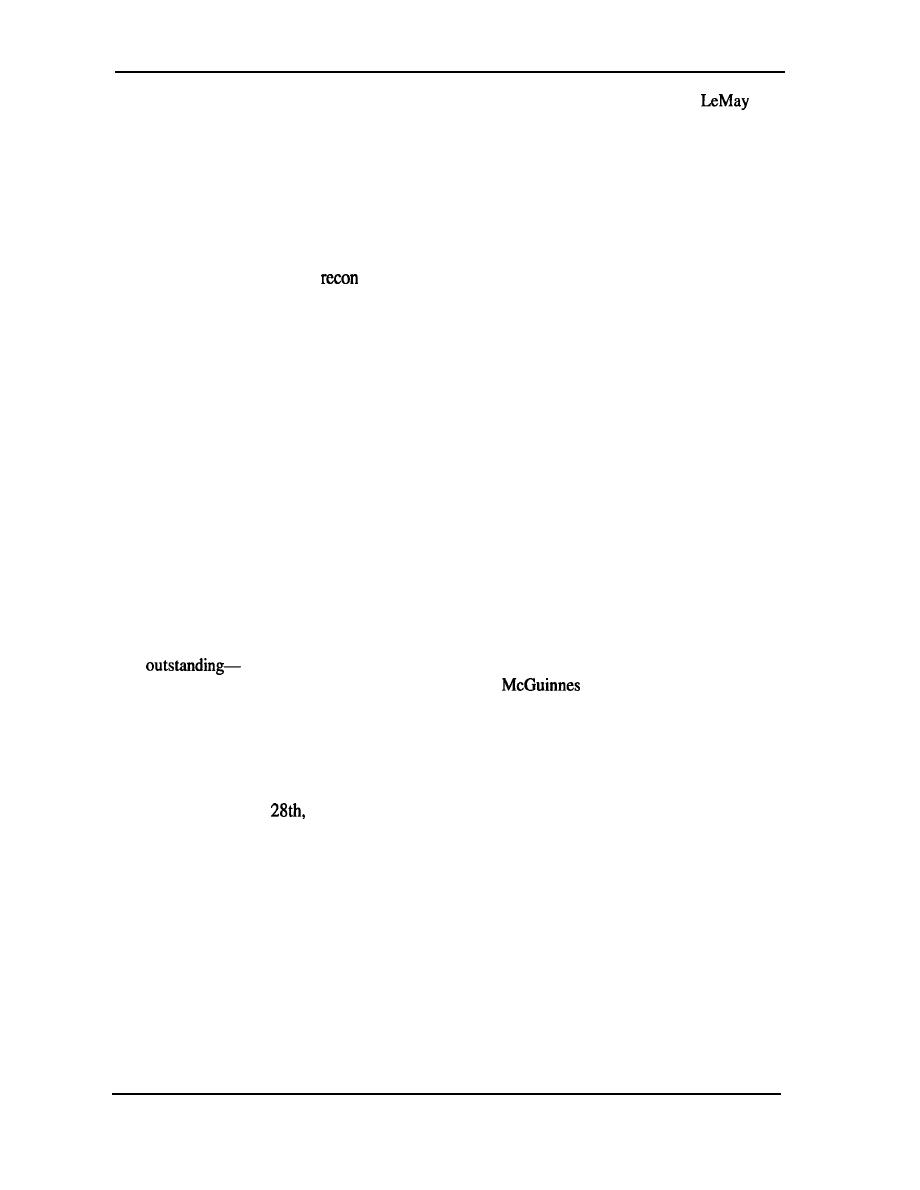
John W. Morris
I stayed with the USASTAF staff several months. Brigadier General Curtis
was
commander when I was sent to the Philippines to join the Pacific Air Command, United States
Army, headquartered at Fort McKinley under Lieutenant General Ennis Whitehead.
I was in the engineer section. Colonel Walker Milner was the engineer. As a captain, I had the
job of inventorying the airfields in the Pacific and making a recommendation on which ones
should be kept operational and which ones should be put on standby or abandoned-this was an
interesting job. We flew in a B-25, the old Mitchell bomber, twin-tailed, two-engine type used
on the raid in Tokyo.
and had to land in the jungle-stayed up there several days until
We lost an engine on one
we were able to get out. We were not in any big trouble, but I've been in more pleasant places.
We inventoried a lot of airfields, made up a list, and recommended those to keep. I was a captain.
Today it would take 50 or 60 people to do a staff study and all that. I guess even then it was
reviewed pretty carefully.
We weren't in the Philippines very long, but I met my wife-to-be there. She was a flight
nurse-and a very lovely nurse, too!
Q: Where?
In the Philippines. Fort McKinley, Manila. Then we went up to Tokyo. I had been to Tokyo on
A:
temporary duty earlier, right after the war ended. I came back to the Philippines and then to
Tokyo again in March of 1945. I stayed in Tokyo about two years. During this time they
separated the Air Force, and my command was then called Far East Air Forces.
General [Hugh] Casey was the engineer for [Douglas] MacArthur. David Parker worked for him.
I was still with Colonel Milner and the Air Force.
In Tokyo, I was put in charge of repairs and utilities. I had to write the R and U [repairs and
utilities] program for the Pacific theater. That was a fairly heady job in those days, including fire
protection regulations and so on. I had one civilian, a fellow named Peterson, who was just
Pete Peterson; and a civilian lady-Marie Hubbard. I had two lieutenants working
for me-Fayette L.Worthington and [William V.]
[Jr.] I think that was it-two
lieutenants, Marie Hubbard, Peterson, myself, and a Japanese girl. We wrote the regulations, put
the budget together, did the whole thing. I couldn't believe it, and I was still a captain. General
Casey gave me a commendation medal, my first award.
Those were the days when the theater commander could promote to major. Jim Hottenroth was
the exec. Somehow or other, my recommendation didn't get in until about the 25th or 26th of
February. On the
the rule was changed to where all field grade promotions had to be
approved by the Department of the Army. My promotion for major didn't go in on time. I finally
made major about three years later, but I had dropped behind my peers in that little deal.
The Japanese, even though we had just defeated them in the war, were excellent people to deal
with. Neat, clean, and they seemed to respect the Army, the Americans. General MacArthur was
doing a magnificent job with the local situation. The American Army lived fairly well in
Japan-much better than in the Philippines. I had good quarters; not luxurious, but a private room
in a nice building. I traveled quite a bit around the islands because of the fire regulations and
maintenance requirements. We had a couple of earthquakes, got caught in the elevator once. I
never could get used to the women coming in to clean the toilets while I was in there.
15



 Previous Page
Previous Page
